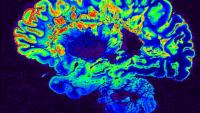Columbia Specimen Bank

The biorepository at the Columbia Lyme and Tick-Borne Diseases Research Center is an essential component in our precision medicine investigations. The goal of precision medicine is to identify tools that will improve individualized patient-centered diagnosis and care. For Lyme and other tick-borne diseases, the tools of precision medicine enable us to develop better diagnostic tests, identify biomarkers of disease state, and develop better treatments. Precision medicine research, however, is only possible if we have high quality blood samples from patients with the disease. We recruit patients from neighboring states as well as from throughout the country, representing different geographic regions; geographic diversity is important as the Borrelia strains can vary by location.
To enhance and promote precision medicine research, we are committed to serving as a resource for serum and spinal fluid specimens that can be accessed for study by researchers at Columbia and throughout the world. Each of these specimens will come from well-characterized patients, some of whom will have received a very extensive battery of other tests as well — immunologic, genetic, imaging, neurocognitive, and clinical profiling. This is an essential national resource.
Columbia University Irving Medical Center is situated in northern Manhattan, right near the George Washington Bridge. This location provides easy access to many of the most heavily endemic areas for Lyme disease, including New Jersey, New York (especially Long Island and the northern counties of Westchester, Dutchess, and Columbia), Pennsylvania, Connecticut, and Rhode Island. As such, we have access to thousands of patients afflicted with Lyme disease — some newly infected and some who have struggled with the disease for many years.
Post-Mortem Tissue Donations
To further characterize the extent of involvement and damage by Borrelia burgdorferi in humans, the Lyme and Tick-Borne Diseases Research Center collects brain, spinal cord, and other tissues from people who have had Lyme disease at some time in their life; this facilitates current and future investigations of the impact of Lyme disease on the body. People with a history of well-documented Lyme disease, which must include a positive Lyme blood test and the medical diagnosis of Lyme disease by a doctor, who wish to arrange a post-mortem donation should contact us at 646-774-7503. It is most important that your next of kin or other individual who will be responsible for arrangements after your death be made aware of your wishes, be provided with the Columbia Lyme Center contact information, and be informed that they should contact us immediately after your death. An essential component of this donation is that you put aside in a safe place your medical history and laboratory tests that document the history of Lyme disease. This can then be given to the Columbia researchers at the time of the post-mortem tissue donation; without this information, the Columbia team will not be able to accept the donation.
In the event that death has just occurred or is imminent, time is of the essence. If this is the case, please call this emergency number 646-549-8880.
Thank you for considering this invaluable donation to further scientific understanding of the neuropathologic effects of Lyme disease.